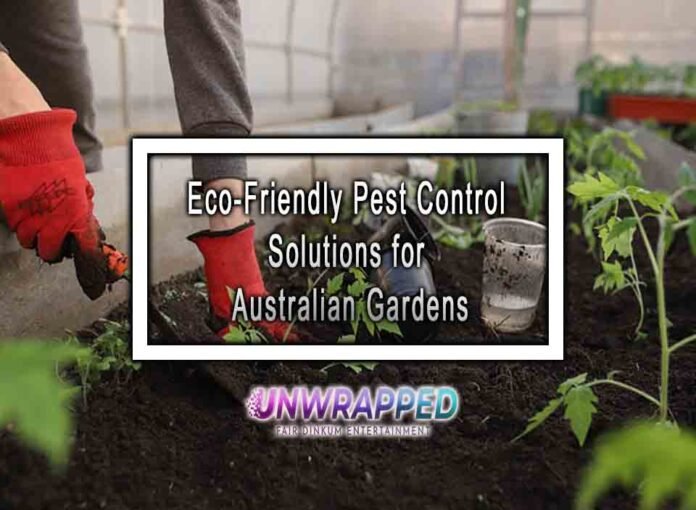Introduction: Maintaining a garden while keeping pests at bay can be challenging, especially if you want to avoid using harmful chemicals. Eco-friendly pest control solutions are a great way to protect your plants while preserving the environment. This guide will explore natural and sustainable methods for managing pests in Australian gardens.
Understanding the Impact of Pesticides on the Environment
Traditional chemical pesticides can have a significant impact on the environment, harming beneficial insects, contaminating soil and water, and disrupting ecosystems. Over time, pests can also develop resistance to these chemicals, making them less effective. By choosing eco-friendly pest control methods, you can protect your garden without contributing to environmental harm.
Natural Pest Repellents for Garden Use
Natural repellents can effectively deter pests without harming the environment. Some popular options include:
- Neem oil: Derived from the neem tree, this oil acts as a natural insecticide, repelling a wide range of garden pests, including aphids, mites, and whiteflies.
- Garlic spray: Garlic’s strong odor repels many insects. Make a spray by blending garlic with water and applying it to your plants.
- Chili spray: Capsaicin in chili peppers acts as a natural repellent for many garden pests. Mix crushed chilies with water and a bit of dish soap, and spray it on plants.
- Companion planting: Planting certain plants together can naturally deter pests. For example, marigolds repel nematodes, while basil can deter flies and mosquitoes.
How to Create a Pest-Resistant Garden
Creating a garden that naturally resists pests involves selecting the right plants and maintaining a healthy environment. Some tips include:
- Choose pest-resistant plants: Some plants are naturally resistant to pests. Research which plants thrive in your area and are less likely to be affected by common pests.
- Diversify your garden: Plant a variety of species to create a balanced ecosystem. Pests are less likely to overwhelm a garden with diverse plant life.
- Encourage beneficial insects: Ladybugs, lacewings, and predatory beetles feed on harmful pests. Attract them by planting flowers like daisies, fennel, and dill.
- Use mulch: Mulching with organic materials can help suppress weeds and maintain soil moisture, making your garden less attractive to pests.
Companion Planting as a Natural Pest Control
Companion planting is a traditional gardening method where certain plants are grown together to benefit each other. This method can help control pests naturally by:
- Repelling pests: Certain plants, like marigolds and nasturtiums, emit scents that deter pests.
- Attracting beneficial insects: Flowers like yarrow and cosmos attract pollinators and predatory insects that help keep pest populations in check.
- Improving soil health: Legumes like beans and peas fix nitrogen in the soil, improving fertility and helping other plants grow strong and healthy.
Using Organic Mulch and Fertilizers
Organic mulch and fertilizers not only nourish your plants but also play a role in pest control. Mulching with materials like straw, wood chips, or compost helps retain soil moisture, suppress weeds, and create a healthy growing environment that is less inviting to pests. Organic fertilizers, such as compost or worm castings, improve soil health, leading to stronger plants that are better able to resist pests.
How to Attract Beneficial Insects
Beneficial insects are natural predators of many garden pests. To attract them to your garden:
- Plant a variety of flowers: Flowers that produce nectar and pollen, such as daisies, sunflowers, and alyssum, attract beneficial insects.
- Provide water: A small dish of water or a birdbath can attract beneficial insects and birds to your garden.
- Avoid pesticides: Even organic pesticides can harm beneficial insects. Use them sparingly and only when absolutely necessary.
- Create habitats: Leave some natural areas in your garden, such as logs or rocks, where beneficial insects can nest and thrive.
DIY Pest Control Solutions for Your Garden
You can make effective pest control solutions at home using common household ingredients:
- Soap spray: Mix a few drops of dish soap with water and spray it on plants to control aphids, whiteflies, and other soft-bodied insects.
- Beer trap: Place a shallow dish of beer in the garden to attract and trap slugs and snails.
- Eggshells: Crushed eggshells scattered around plants can deter slugs and snails, as they dislike crawling over the sharp edges.
- Coffee grounds: Sprinkle used coffee grounds around the base of plants to repel ants and other insects.
The Benefits of Eco-Friendly Pest Management
Eco-friendly pest management offers numerous benefits, including:
- Protecting beneficial insects: By avoiding harmful chemicals, you allow beneficial insects to thrive, helping to naturally control pests.
- Reducing environmental impact: Natural pest control methods are safer for the environment, preventing pollution and protecting wildlife.
- Promoting healthier plants: Organic practices improve soil health, leading to stronger, more resilient plants that are less susceptible to pests.
- Sustainability: Eco-friendly methods are often more sustainable in the long run, reducing the need for chemical inputs and fostering a balanced garden ecosystem.











